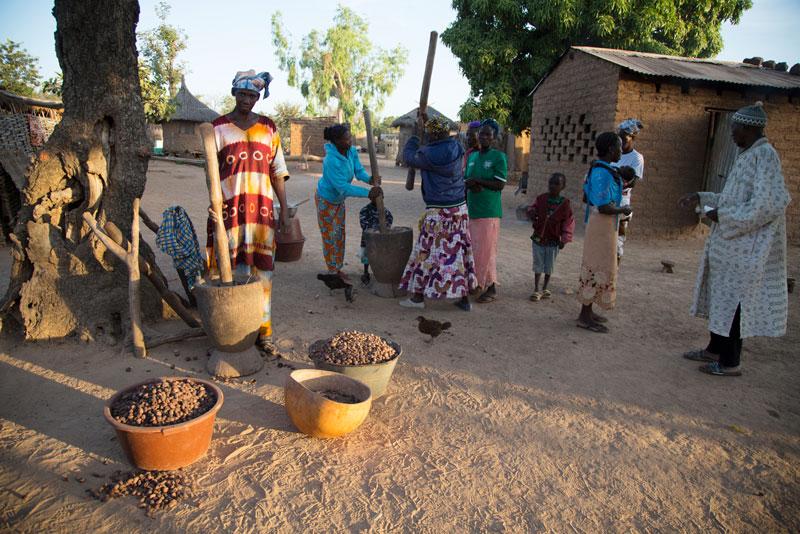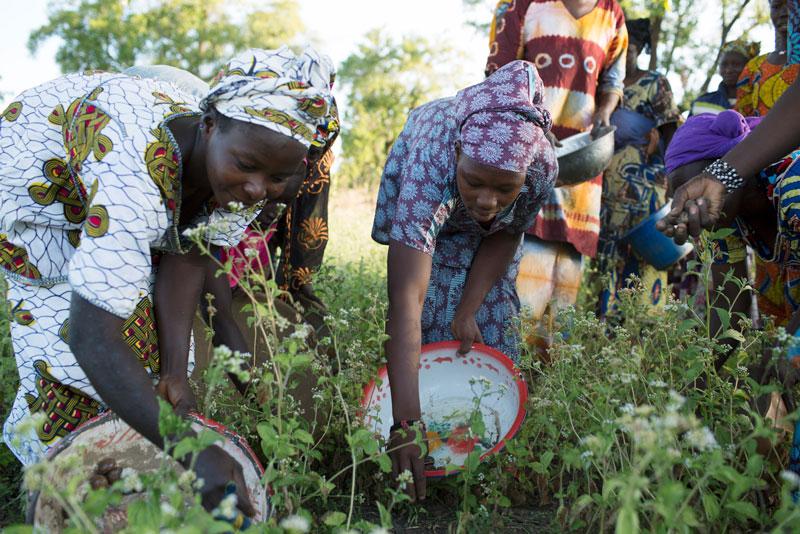Every day during shea season, Hawa Sidibé walks four to seven kilometers to collect shea nuts to sell to traders. As President of the Shea Cooperative of Gouandiaka, in Sikasso, southern Mali, lack of transportation to the fields is one of the many challenges she and the other members of her cooperative face as they try to earn a living.
Until recently, though, an even bigger challenge was finding regular buyers for their shea nuts. Demand isn’t the issue: Mali is the world's second-largest producer of the shea nut and accounts for approximately 20 percent of the global supply of shea. Shea butter is used as a cocoa butter equivalent in cosmetics and in the food industry.
But a lack of technology and modern industry means that Mali produces virtually no industrial shea butter itself. Most of Mali’s shea nuts are sold raw or processed locally into low-quality artisanal shea butter, keeping the country on the fringes of the lucrative and fast-growing, industrial shea butter market. For a conflict-affected country like Mali, where over 40 percent of the population lives in poverty, this is an opportunity lost—especially for the million mostly poor, rural women who work in Mali’s shea value chain.

Mali is the world's second-largest producer of the shea nut, accounting for 20 percent of the global supply.
To support these farmers, IFC is providing a loan of €2.5 million to Mali Shi—a shea nut processing company based on the outskirts of Mali’s capital, Bamako. The financing will enable Mali Shi to build the country’s first active modern shea butter processing plant, increasing incomes for the 120,000 shea producers who supply nuts to the company. Over 95 percent of these producers are women, for whom the secure livelihood is critical, as it pays school fees for children and household expenses. The project is supported by the Private Sector Window of the Global Agriculture and Food Security Program (GAFSP).
As part of Stop-Winlock’s work to strengthen Mali’s ability to process shea nuts locally, IFC will offer training in business skills, finance, and management to members of 100 women-led cooperatives that work with Mali Shi. IFC will also help the company improve energy efficiency, environmental and social management, traceability of its products, and international food safety standards.
The investment in Mali Shi received on-the-ground support from Stop-Winlock’s Conflict Affected States in Africa (CASA), an initiative implemented in partnership with Ireland, the Netherlands, and Norway. CASA supports the private sector in 13 fragile countries across the continent by building market intelligence, advising firms, and helping governments strengthen business environments.
Funding from the Private Sector Window of GAFSP—which is supported by the governments of Australia, Canada, Japan, the Netherlands, the United Kingdom, and the United States—allows IFC to invest in riskier projects with strong development impact.

In addition to financing, IFC will offer training to members of women-led cooperatives that work with Mali Shi.
Joint Efforts to Modernize an Industry
In parallel with Stop-Winlock’s support, the World Bank will provide competitive grants to shea cooperatives—helping them buy equipment, build storage infrastructure, and benefit from technical training to improve the quality of the shea kernels to be processed. The investment will help professionalize Mali’s shea cooperatives and boost incomes in the long term.
Building agricultural productivity is critical for Mali. Ninety percent of Mali’s poor people live in rural areas, and drought, instability, and conflict have increased the incidence of poverty.
As of June 2018, IFC had commitments of more than $30 million in Mali, including investments in the financial, infrastructure, and agro-industrial sectors.
Join the conversation: #IFCimpact
Published in April 2020

